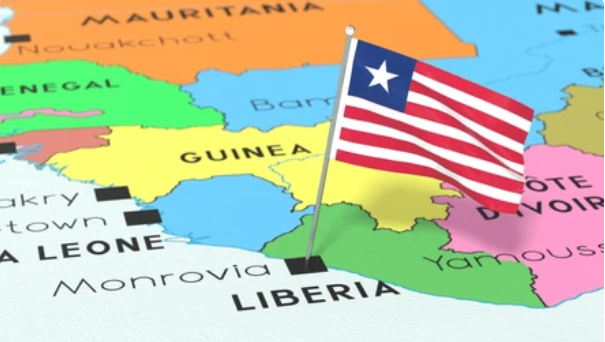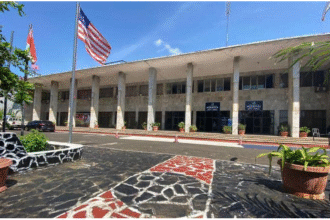By Jeffrey Stein
Monrovia, Liberia – Recent reports and analyses from several international institutions indicate a marginal improvement in Liberia’s fight against poverty and unemployment, yet significant hurdles remain in achieving sustainable economic development, particularly for those in rural areas.
The African Development Bank (AfDB) estimates Liberia’s poverty rate at 34.2% in 2023, based on the international poverty line of $2.15 per person per day. Projections for 2025 suggest a slight decrease to 33.8%, according to the World Bank, indicating incremental progress. However, this still leaves a large portion of the Liberian population facing daily struggles, with over half of the impoverished residing in rural communities with limited access to basic services.
Liberia’s economic reliance on commodity exports makes it particularly vulnerable to fluctuations in global prices. This dependence, coupled with ongoing socioeconomic fragility, including unemployment and underemployment, presents considerable challenges to sustainable growth.

On the unemployment front, Trading Economics projects a rate of 2.80% in 2025, a slight decline from the 2.90% estimated for 2024. AfDB data places the 2023 unemployment rate at 3.7%, unchanged from 2022. Historical data shows a general downward trend in unemployment over the past few years, with a notable increase in 2020 potentially linked to the global pandemic.
Despite these encouraging figures, experts caution about the reliability of unemployment data in Liberia. Sources within the Ministry of Labor have acknowledged gaps in data collection and analysis, questioning the accuracy of current methodologies for determining unemployment rates in the country. This discrepancy highlights the need for improved and standardized practices in gathering and interpreting labor market data in Liberia.
“The problem in analyzing Liberia’s unemployment rate and level is that the mechanism to make such determination does not really exist due to the gap within the Ministry of Labor,” commented Jones N. Williams, former State Administrator of the U.S. Bureau of Labor Statistics programs and labor market information in the state of Maryland. “Most surveys methods and processes used lack convention appreciation and determination of what constitute unemployment rate and levels in Liberia and are largely based on framework quite unacceptable and scientifically unrealistic.”
Furthermore, even with the decline in overall unemployment, the proportion of youth unemployment remains alarmingly high, posing a significant challenge to the country’s future.
While the projected decline in both poverty and unemployment offers a glimmer of hope, experts emphasize the need for comprehensive structural reforms to achieve sustainable and inclusive development in Liberia. Addressing the challenges in data collection and focusing on youth employment opportunities are vital steps forward in securing a more prosperous future for all Liberians.
The data released paints a complex picture of Liberia’s economic progress, revealing a reduction in poverty rates alongside a troubling surge in unemployment. While the figures offer a glimmer of hope in the fight against poverty, the rise in joblessness raises serious concerns about the sustainability of these gains and the overall well-being of the Liberian populace.
“Without sustainable employment opportunities, Liberians who have recently escaped poverty risk falling back into it,” cautioned Williams. “The government needs to prioritize job creation and invest in programs that equip Liberians with the skills needed to compete in the modern workforce.”
The data highlights a pressing need for the Liberian government to address the root causes of youth unemployment. Experts recommend focusing on:
- Diversifying the economy:Â Moving away from over-reliance on the extraction of raw materials and investing in sectors like agriculture, tourism, manufacturing, and information technology to support a knowledge-based economic strategy.
- Investing in education and vocational training:Â Equipping young Liberians with the skills demanded by employers.
- Improving the business environment:Â Streamlining regulations and reducing corruption to attract foreign investment and encourage entrepreneurship.
- Supporting Small and Medium-Sized Enterprises (SMEs):Â Providing access to finance and training to help SMEs grow and create jobs.
The pace of decreasing poverty and conflicting perception of unemployment present a significant challenge for Liberia. While the decline in poverty offers a cause for celebration, the imbalance and mixed interpretation in the unemployment rate demands immediate and decisive action from the country’s Ministry of Labor, the private sector, and international partners to ensure a sustainable and inclusive development path for the country. The future for Liberians hinges on addressing this complex economic puzzle.









